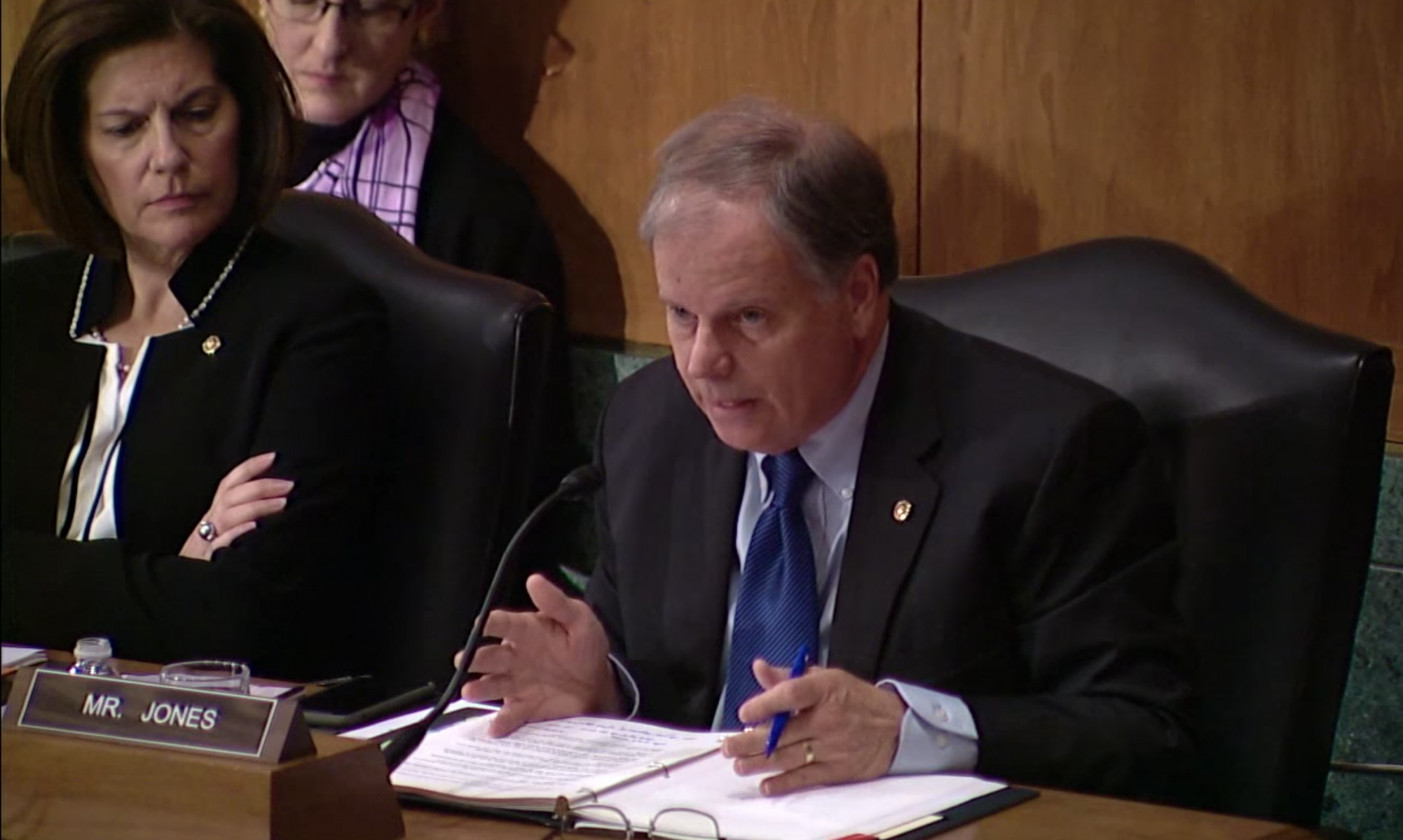Friday, U.S. Senator Doug Jones (D-Alabama) convened a U.S. Senate Select Committee on Aging field hearing entitled, “Pancreatic Cancer: Fighting the World’s Toughest Cancer in Alabama and Nationally,” at the University of Alabama at Birmingham (UAB). The witnesses included family members who have lost a loved one from pancreatic cancer, as well as the director of UAB’s Pancreatobiliary Disease Center.
“As too many of us in this room know firsthand, pancreatic cancer takes a devastating toll on families and communities across this state and the country,” Sen. Jones said. “So many lives are touched by cancer in general, but in particular pancreatic cancer is a deadly disease. Last year—although my family has had run-ins with different forms of cancer over the years—I became one of the millions who has lost a loved one to pancreatic cancer when my dear friend, Giles Perkins, lost his life to this terrible disease. I am grateful to have Giles’ wife and also a dear friend, Hillery Head, with us today to honor his memory,” said Senator Jones in his opening remarks.”
“Unfortunately, Giles is one of many Americans and Alabamians who have lost their lives to pancreatic cancer,” Jones said. “This year, more than 56,000 Americans will be diagnosed with pancreatic cancer. The disease has one of the lowest survival rates of any form of cancer, with less than nine-percent of patients surviving five years after their initial diagnosis. In 2019, this disease is expected to claim nearly 46,000 lives across the county and over 700—approximately 770—in Alabama.”
The witnesses shared their testimony about the impact the disease had on their loved ones and the importance of investing in medical research.
“In the spring of 2016, my husband, Giles Perkins, began feeling under the weather,” Hillery Head said. “His health declined rapidly, and none of the antibiotics he took seemed to help. I urged him to see my primary care physician, who ran him through a battery of tests, diagnosed him with Stage 4 Pancreatic Cancer. Despite all that was in our favor, on December 2, 2018, Giles passed away. He died in our home, surrounded by family and friends and people who loved him. Cancer doesn’t care. So, it’s up to us to care. It’s up to us to support, to fight, to fund, to help, to love, and to live every day like it is a gift from God. It’s up to us to support families facing this same diagnosis, and find a cure for this disease.”
Lynette F. Nall lost her daughter, Letisha, to pancreatic cancer.
“On January 30, 2019, after a few days at home, Tish succumbed to the disease in bed early that morning,” Nall said. “Needless to say, there should be early detection for this disease. Tish’s first visit to the doctor should have resulted in some test that could have saved her life. With all the trials that have been done, and still going on, there should be some specific treatment that has been proven to work well for this cancer. The trial and error methods were frustrating for Tish, and for me, as her mother, to see her suffer.”
Steve Cook lost his wife, Marqueta, to pancreatic cancer.
“As [Marqueta] continued to battle the disease, and we began learning more about pancreatic cancer, I realized that funding for research was a challenge,” Cook said. “Recognizing that one of the strongest weapons we have in fighting the disease is federal research funding, Marqueta encouraged me to take the message to our leaders in Washington, D.C. I attended my first PanCAN (Pancreatic Cancer Action Network) Advocacy Day in 2018, about two weeks after she passed away, just 12 months after her initial diagnosis. Truth be told, I considered not going but I knew she had wanted me to go – I am very glad I did. This disease can render you hopeless but taking a unified message to Capitol Hill with hundreds of others was inspiring – we all had a shared bond.”
J. Bart Rose, MD, MAS is the Director of UAB’s Pancreatobiliary Disease Centers, the largest treatment center in the region for pancreatic cancer.
“Alabama has a higher death rate from pancreas cancer than would be predicted,” Dr. Rose said. “Our state has the 9th highest pancreatic cancer death rate in the United States even though it only ranks as the 21st highest rate for new case numbers… As a pancreatic cancer researcher, I can state without question that investment in this area is desperately needed. The only way we are going to move the needle on improving overall survival beyond the currently unacceptable 9% is by having better therapy for advance disease and earlier detection.”
Giles Perkins was Jones longtime friend and managed his 2017 campaign for Senate, despite battling cancer at the time.


















































